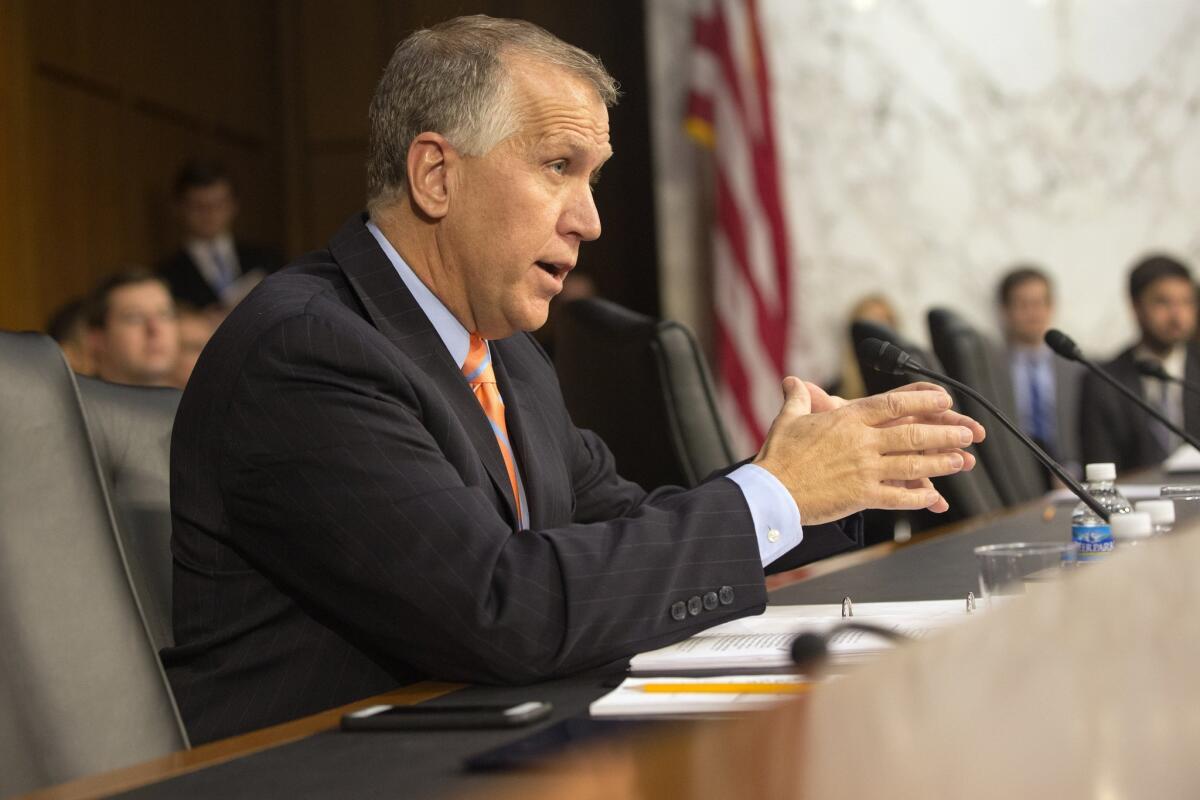Opinion: This senator’s idea could make you sick. Yes, literally.

On the distant chance that you will ever wind up eating in the dining room of the United States Senate -- be forewarned.
Thom Tillis, the newly minted Republican senator from North Carolina, has said with more passion than accuracy that ours is “one of the most regulated nations in the history of the planet” -- but no, that’s not the story here.
Tillis thinks that a good start to unshackling Americans from this regulatory prison is to allow food-service workers to stop washing their hands after bathroom breaks. (Here he is on C-SPAN, talking about when the idea first came to him as a state legislator, several years ago. He was sitting in a Starbucks at the time.)
The senator may think food-service businesses would be delighted with a handwash-optional policy, but what about the customers who eat the food that these maybe-I-did-and-maybe-I-didn’t chefs and servers and busboys handle?
His airy solution: market forces. “I don’t have any problem with Starbucks if they choose to opt out of this policy as long as they post a sign that says ‘We don’t require our employees to wash their hands after leaving the restroom.’ ”
In the 150 or so years since Dr. Ignaz Semmelweis proved that doctors and nurses cleaning their hands saves patients’ lives, it’s been the cheapest and easiest life-saving public health measure ever.
Still, over the last several years, the CDC found that 12% of food workers said they had to go to work even when they were vomiting or had diarrhea. Six in 10 restaurant managers said at least one worker had shown up for work in spite of being sick, and 7 in 10 said they’d done the same thing.
At least those workers were required to wash their hands.
If the senator would like to get rid of absurd rules, he could start in his home state of North Carolina. In 2012, after scientists warned that climate change could flood parts of the coast and put development at risk, the state legislature passed a law to deal with that: The law banned the use of long-term forecasts.
Follow Patt Morrison on Twitter @pattmlatimes
More to Read
A cure for the common opinion
Get thought-provoking perspectives with our weekly newsletter.
You may occasionally receive promotional content from the Los Angeles Times.







